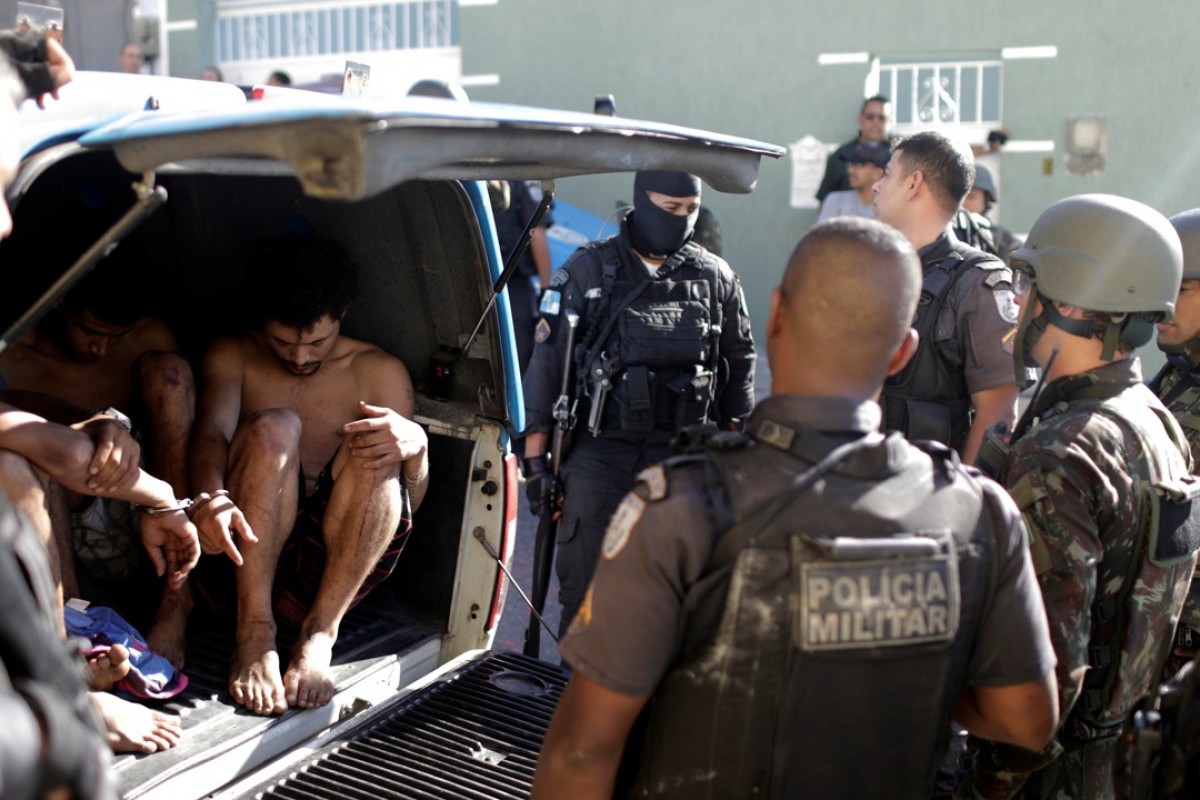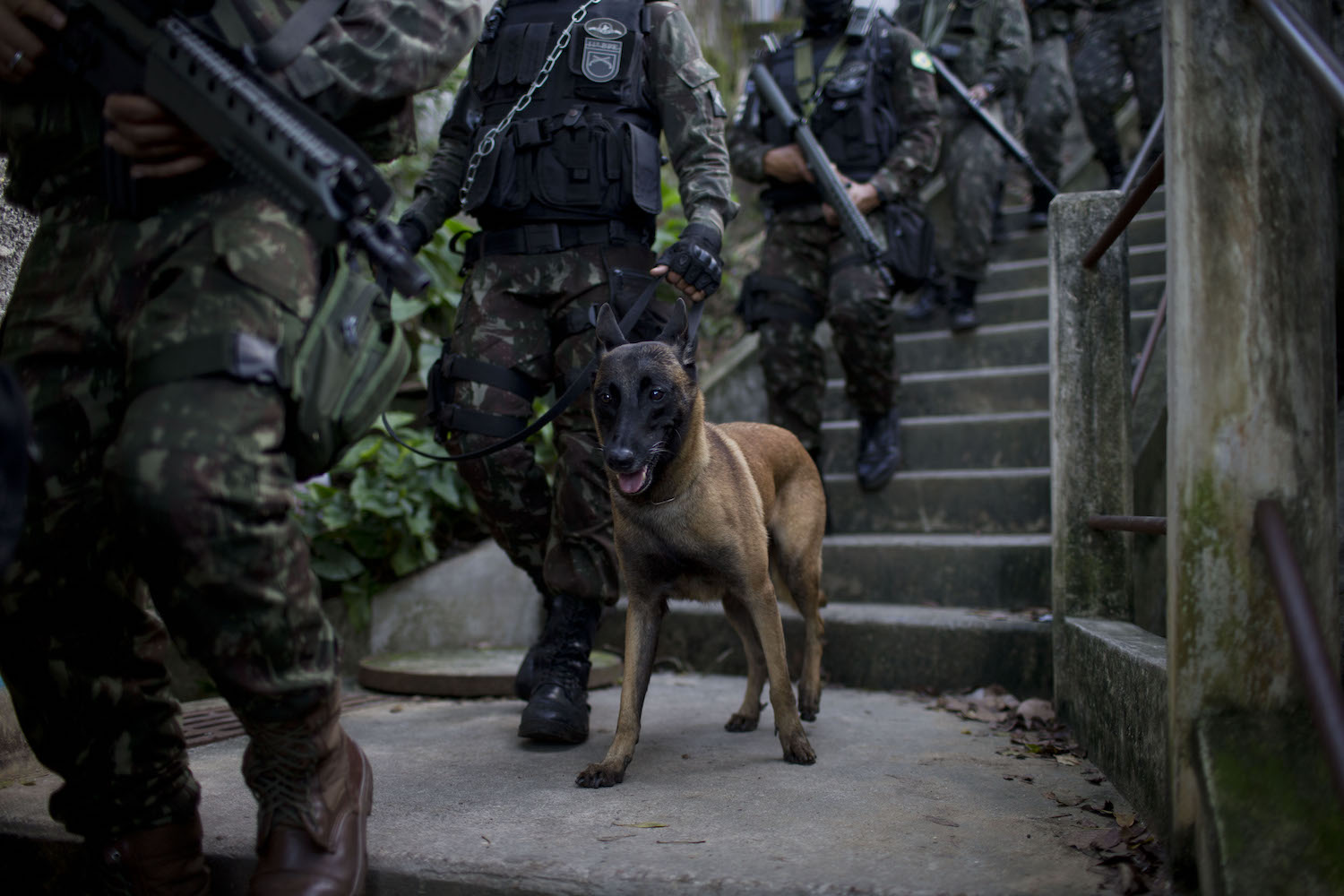The cocaine trade has affected Brazil and in turn its favelas, which tend to be ruled by drug lords. Regular shoot-outs between traffickers and police and other criminals, as well as assorted illegal activities, lead to murder rates in excess of 40 per 100,000 inhabitants in the city of Rio and much higher rates in some Rio favelas.[24] Traffickers ensure that individual residents can guarantee their own safety through their actions and political connections to them. They do this by maintaining order in the favela and giving and receiving reciprocity and respect, thus creating an environment in which critical segments of the local population feel safe despite continuing high levels of violence.
Drug use is highly concentrated in these areas run by local gangs in each highly populated favela. Drug sales run rampant at night when many favelas host their own baile, or dance party, where many different social classes can be found. These drug sales make up a business that in some of the occupied areas rakes in as much as US$150 million per month, according to official estimates released by the Rio media

